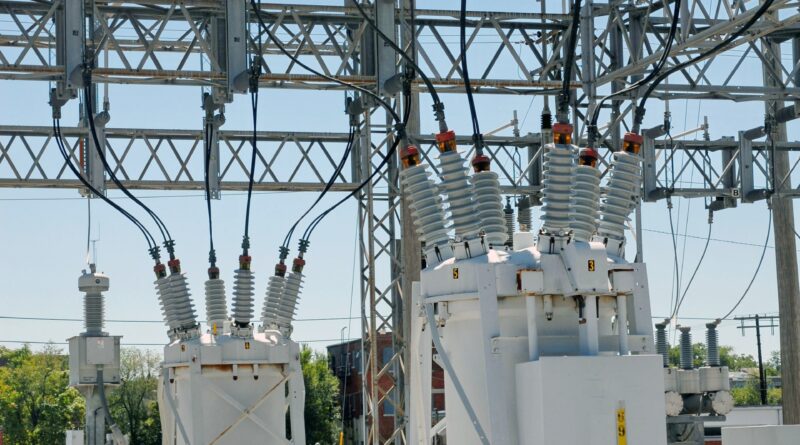Safety First: Understanding the Vitality of Electrical Safety Audits in Noida
Introduction
Electrical safety is a critical concern in Noida, as it is in any city. With the increasing reliance on electricity in homes, offices, and industries, it is essential to prioritize safety to prevent accidents and ensure the well-being of individuals and properties. One effective way to assess and enhance electrical safety is through regular electrical safety audits. In this article, we will delve into the importance of electrical safety audits in Noida, exploring their benefits, process, and key considerations.
Table of Contents
- The Significance of Electrical Safety Audits
- Understanding Electrical Safety Standards
- Components of an Electrical Safety Audit
- Benefits of Regular Electrical Safety Audits
- Ensuring Compliance with Regulations
- Mitigating Electrical Hazards
- Identifying Potential Risks
- Improving Operational Efficiency
- The Process of Conducting an Electrical Safety Audit
- Pre-Audit Planning and Preparation
- On-Site Inspection and Assessment
- Documentation and Reporting
- Implementing Corrective Measures
- Training and Education
- Evaluating and Maintaining Electrical Safety
1. The Significance of Electrical Safety Audits
Electrical safety audits are systematic examinations of electrical systems, equipment, and practices to identify potential hazards and ensure compliance with safety regulations. These audits play a crucial role in preventing electrical accidents, protecting lives, and safeguarding valuable assets. Noida, being a bustling city with a significant industrial presence, requires stringent measures to address electrical safety concerns effectively.
2. Understanding Electrical Safety Standards
To conduct effective electrical safety audits, it is essential to have a comprehensive understanding of the applicable safety standards and regulations. In Noida, electrical safety audits should adhere to the guidelines set by the National Electrical Code (NEC), the Bureau of Indian Standards (BIS), and other relevant local regulations.
3. Components of an Electrical Safety Audit
An electrical safety audit typically comprises several key components. These include a thorough examination of electrical equipment, wiring systems, grounding, electrical protection devices, signage, and safety procedures. The audit also assesses compliance with safety protocols, training programs, and maintenance practices.
4. Benefits of Regular Electrical Safety Audits
Regular electrical safety audits offer numerous benefits to individuals, organizations, and communities. Let’s explore some of the significant advantages:
4.1 Ensuring Compliance with Regulations
Electrical safety audits help organizations ensure that they comply with the prevailing electrical safety regulations. By identifying areas of non-compliance, audits allow for corrective measures to be implemented promptly, reducing the risk of penalties and legal issues.
4.2 Mitigating Electrical Hazards
Identifying and addressing electrical hazards is crucial to prevent accidents, injuries, and fires. Electrical safety audits help identify outdated equipment, faulty wiring, overloaded circuits, and other potential risks. By rectifying these hazards, audits significantly reduce the chances of electrical accidents.
4.3 Identifying Potential Risks
Electrical safety audits go beyond immediate hazards and also focus on potential risks. By evaluating the overall electrical infrastructure, audits can identify areas where risks may arise in the future, allowing for proactive measures to be taken to mitigate those risks.
4.4 Improving Operational Efficiency
An efficient electrical system is vital for smooth operations in any setting. Regular safety audits help identify areas where energy efficiency can be improved, optimizing electrical usage, reducing wastage, and ultimately lowering operational costs.
5. Ensuring Compliance with Regulations
Electrical safety audits are crucial in Noida to ensure compliance with safety regulations, such as the National Electrical Code (NEC) and Bureau of Indian Standards (BIS).
6. Mitigating Electrical Hazards
Electrical safety audits help identify and rectify potential hazards, reducing the risk of accidents, injuries, and fires.
7. Identifying Potential Risks
Beyond immediate hazards, electrical safety audits assess the electrical infrastructure to identify and mitigate future risks.
8. Improving Operational Efficiency
Regular safety audits optimize electrical usage, improve energy efficiency, and reduce operational costs.
Conclusion
Electrical safety audits are an indispensable tool in ensuring the safety and well-being of individuals and properties in Noida. By adhering to established safety standards, conducting regular audits, and promptly addressing identified issues, we can create a safer environment for everyone. Remember, safety should always come first when dealing with electricity.
FAQs (Frequently Asked Questions)
- What is an electrical safety audit? An electrical safety audit is a systematic examination of electrical systems and practices to identify potential hazards and ensure compliance with safety regulations.
- Who should conduct electrical safety audits? Electrical safety audits should be conducted by qualified professionals with expertise in electrical systems and safety standards.
- How often should electrical safety audits be performed? The frequency of electrical safety audits depends on various factors, including the type of facility, the complexity of the electrical systems, and local regulations. It is recommended to conduct audits at least once a year.
- What happens if electrical hazards are identified during an audit? If electrical hazards are identified during an audit, immediate corrective actions should be taken to mitigate the risks. This may involve repairing or replacing faulty equipment, updating wiring systems, or providing appropriate training to personnel.
- Can electrical safety audits reduce insurance premiums? Yes, implementing regular electrical safety audits and maintaining a safe electrical environment can potentially reduce insurance premiums, as it demonstrates a commitment to risk management and accident prevention. However, it is advisable to consult with insurance providers for specific details and requirements.
Remember, electrical safety audits are essential for preventing accidents, protecting lives, and ensuring a secure environment. Stay proactive and prioritize safety in every electrical endeavor.




